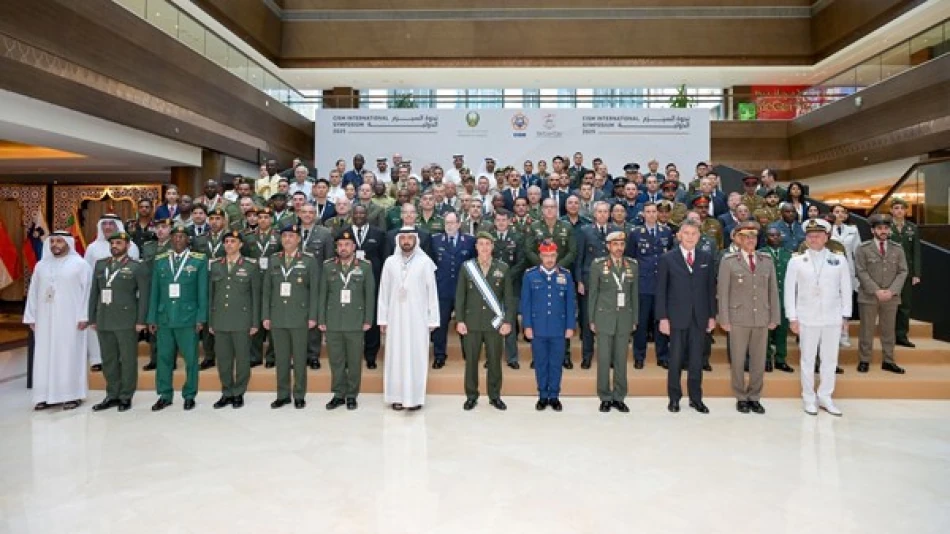
Hamdan bin Mohammed Sponsors Launch of 'International Seismic 2025' Conference
The UAE is hosting the first-ever Middle East scientific symposium for the International Military Sports Council (CISM), bringing together 130 military officials, experts, and researchers from 35 countries to discuss physical readiness and resilience in armed forces. The event runs until October 22 in Abu Dhabi, marking a significant shift toward integrating sports science with military preparedness.
Under the patronage of Sheikh Hamdan bin Mohammed bin Rashid Al Maktoum, Crown Prince of Dubai and Deputy Prime Minister, the symposium opened with Lieutenant General Ibrahim Nasser Al Alawi, UAE Ministry of Defense Undersecretary, leading the ceremony. The gathering focuses on "Physical Readiness and Resilience in Armed Forces: Challenges and Future Prospects."
This represents more than just another military conference. The UAE is positioning itself as a bridge between nations through sports diplomacy, aligning with CISM's core message of "Friendship through Sport." Major General Obaid Ali Al Mansoori, who heads the organizing committee, emphasized that physical readiness isn't just about training requirements—it's about building stability and adaptability in complex military environments.
The symposium tackles pressing modern challenges that military forces face today. Climate change impacts on operations, sports medicine advances, combat sports applications, and cutting-edge technologies all feature prominently in discussions. These aren't abstract topics—they directly affect how armed forces prepare personnel for real-world scenarios.
**Why This Matters for Military Strategy**
Professor Thierry Zintz from Catholic University of Louvain in Belgium highlighted CISM's role as a key player in defense diplomacy during turbulent times. Military sports organizations increasingly serve as soft power tools, creating cooperation channels that traditional diplomacy might struggle to establish.
The research presentations show how military thinking is evolving. Dr. Patrick Molly from Belgium's Royal Military Academy presented new methods for measuring energy expenditure while carrying military equipment. Brazilian Navy researchers shared findings on energy adaptation among women in naval training programs. These studies directly impact how militaries design training programs and equipment loads.
UAE researchers contributed significant findings too. Dr. Aisha Al Dhaheri from UAE University discussed sustainable protein sources for military nutrition programs, while UAE Ministry of Defense researcher Abdulrahman Ahmed Mohammed presented studies on how training interruptions affect military fitness levels.
**The Technology Integration**
The symposium reveals how modern militaries are embracing scientific approaches to human performance. Austrian Armed Forces experts Wolfgang Rausch and Heinz Wichtenthal introduced new evaluation systems for military specializations. Czech Republic's Martin Bogala shared insights on tactical performance in different military environments.
This scientific approach reflects broader changes in military thinking. Armed forces worldwide recognize that physical and mental resilience often determine mission success more than equipment alone. The research being shared here will likely influence training protocols across participating nations.
The event also demonstrates the UAE's growing influence in international military cooperation. By hosting this first-of-its-kind regional symposium, the UAE positions itself as a facilitator of military-to-military relationships in an increasingly complex geopolitical environment.
The symposium concludes with practical applications—participants engage in sports activities including archery competitions, embodying the solidarity and cooperation that CISM promotes. But the real impact will come from how participating nations implement the research findings and collaborative frameworks discussed over these three days.
For military planners and defense officials worldwide, this symposium represents a shift toward evidence-based approaches to personnel development and international cooperation through shared challenges in military readiness.
Most Viewed News

 Layla Al Mansoori
Layla Al Mansoori






